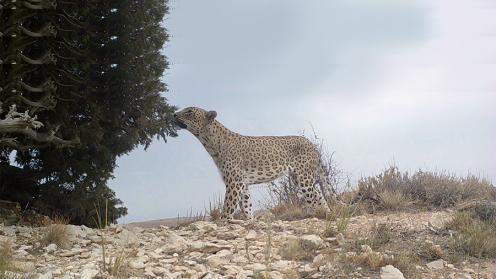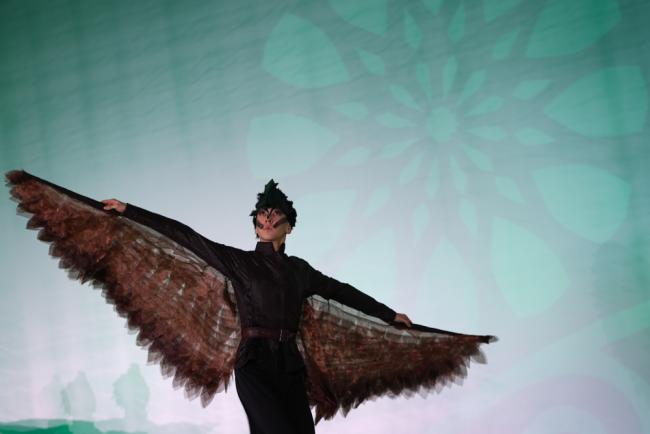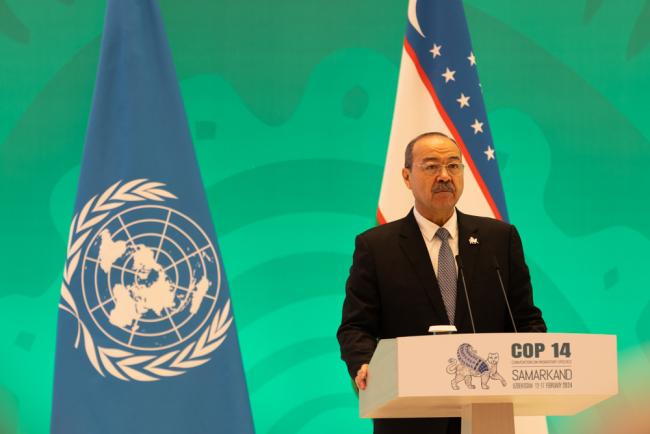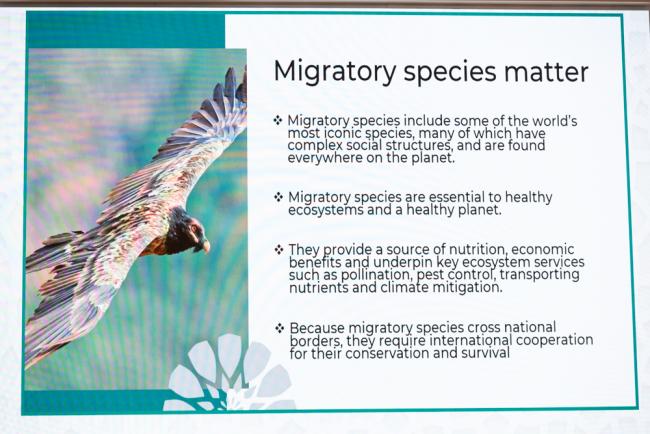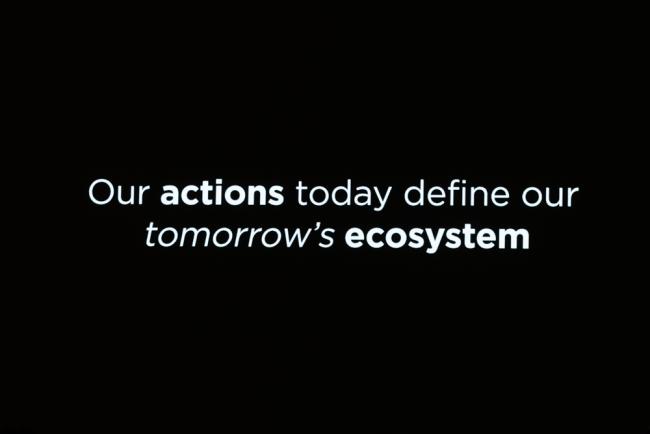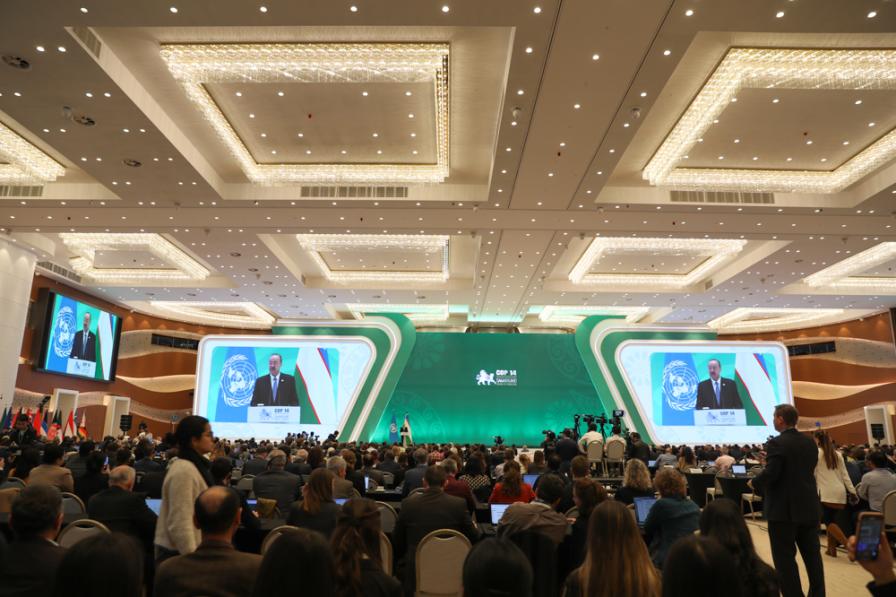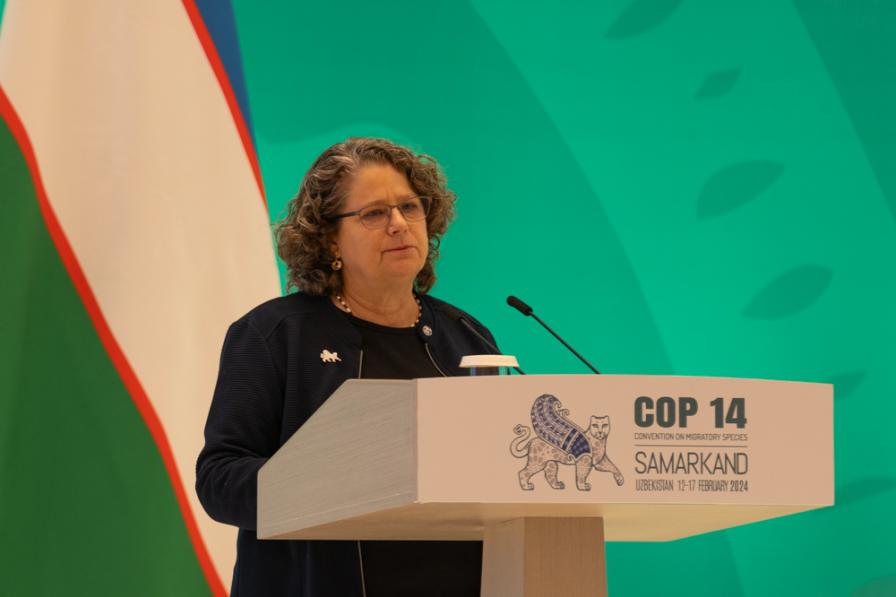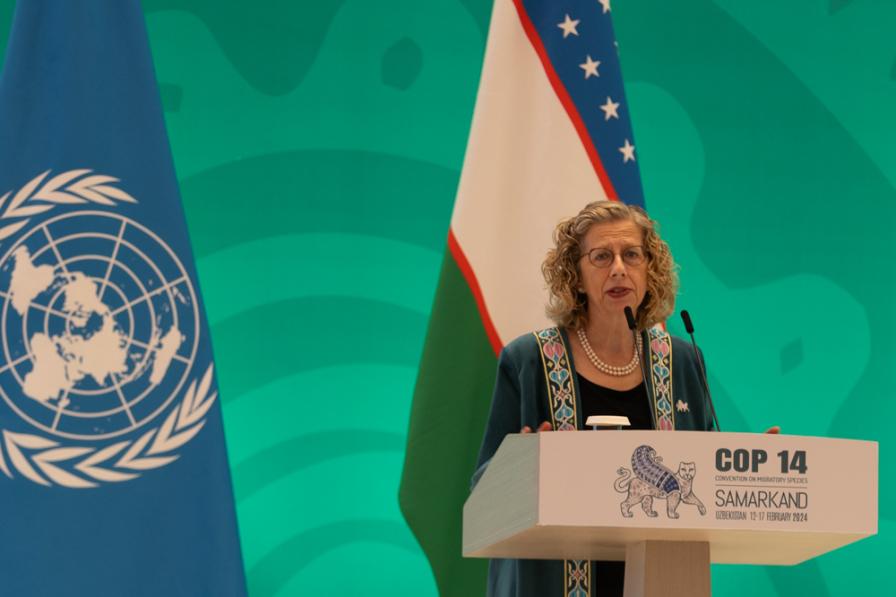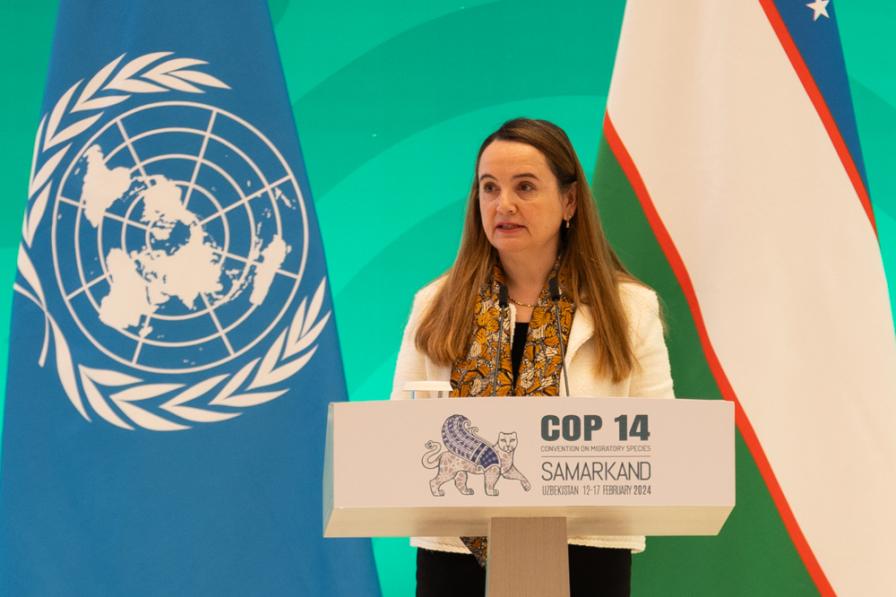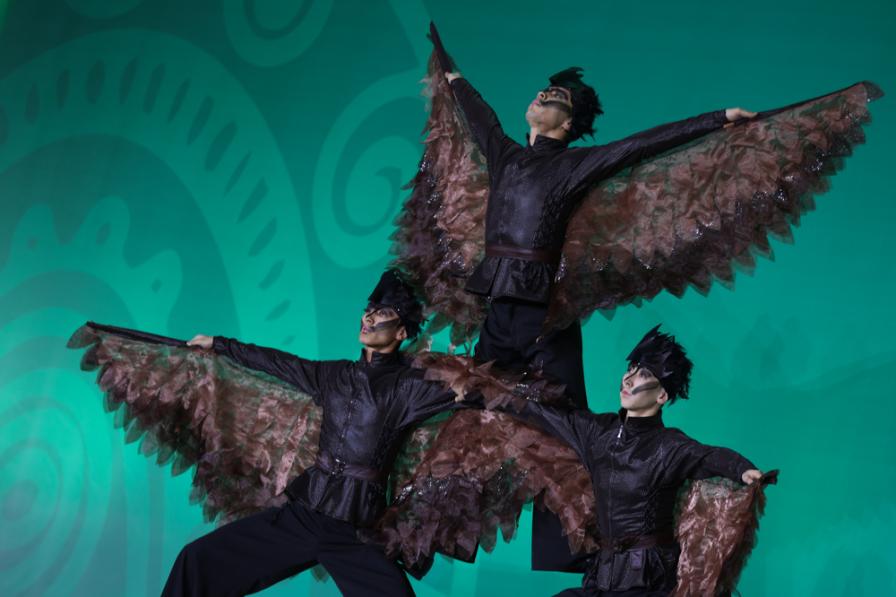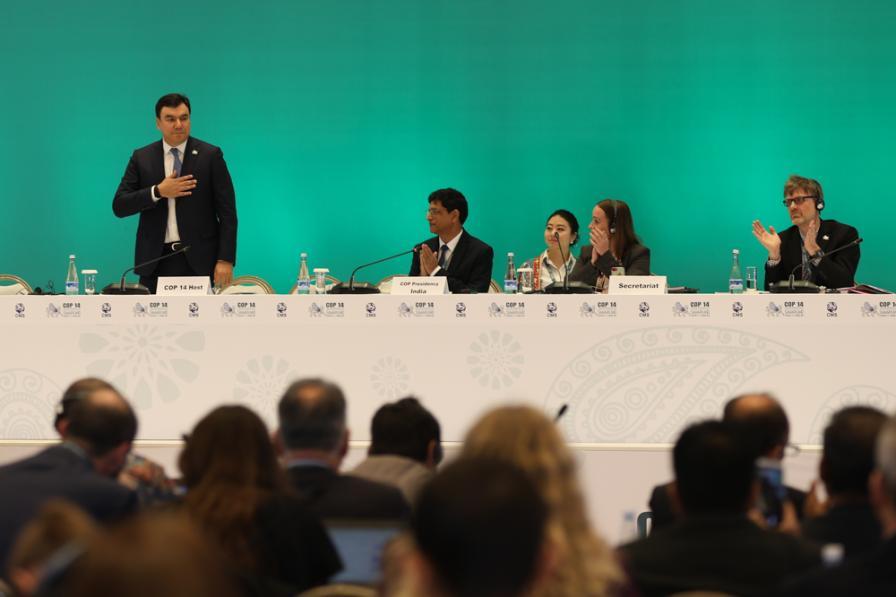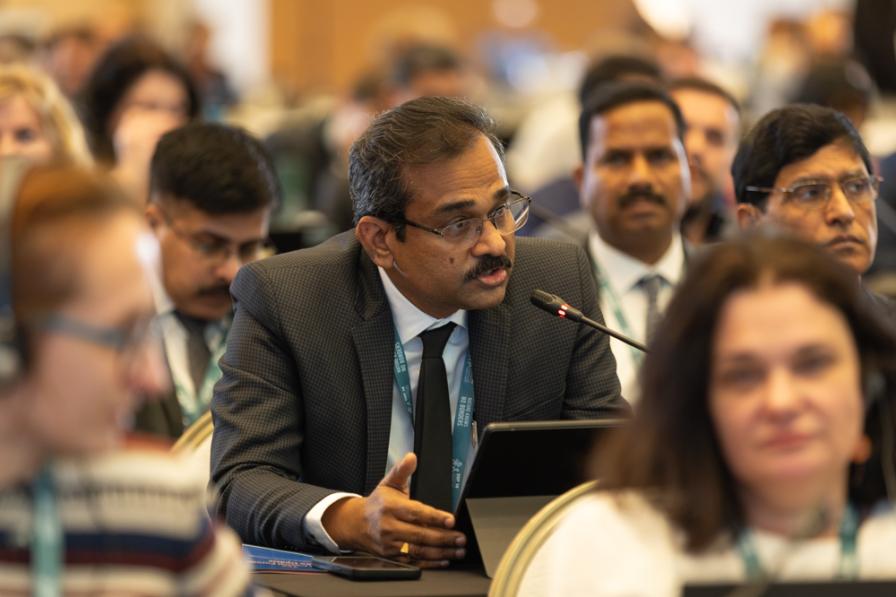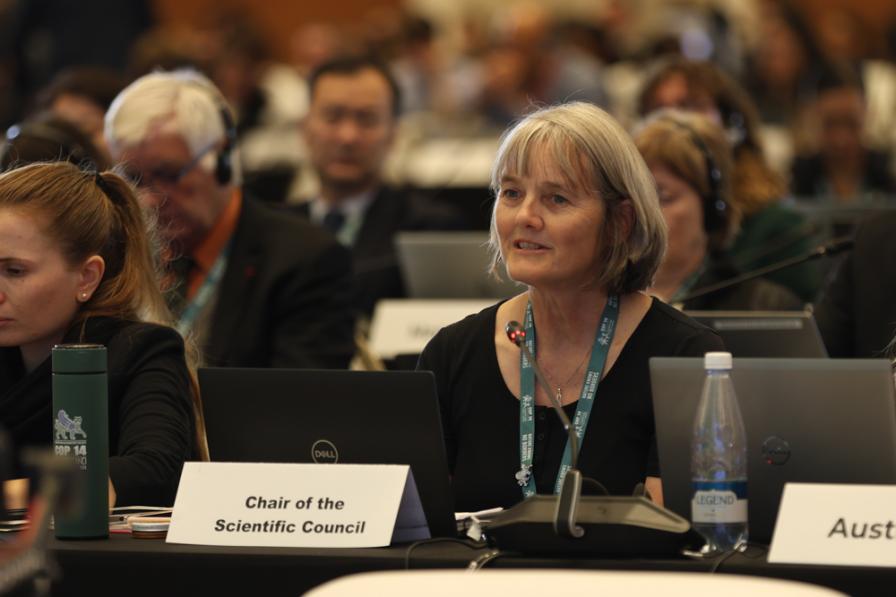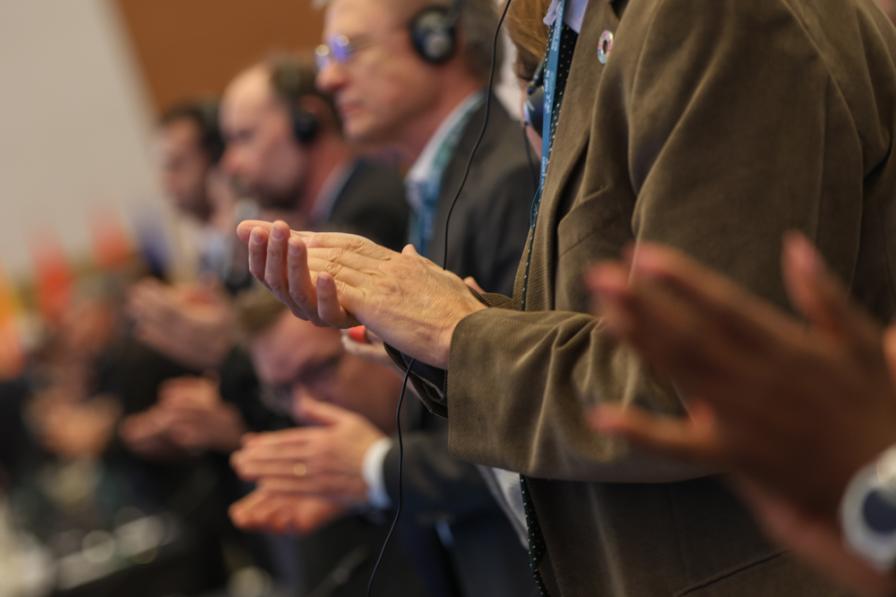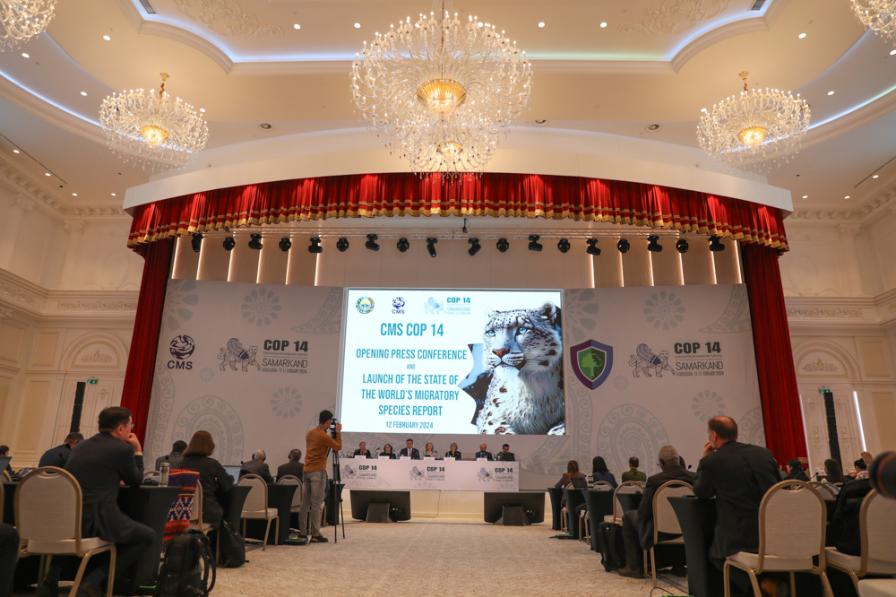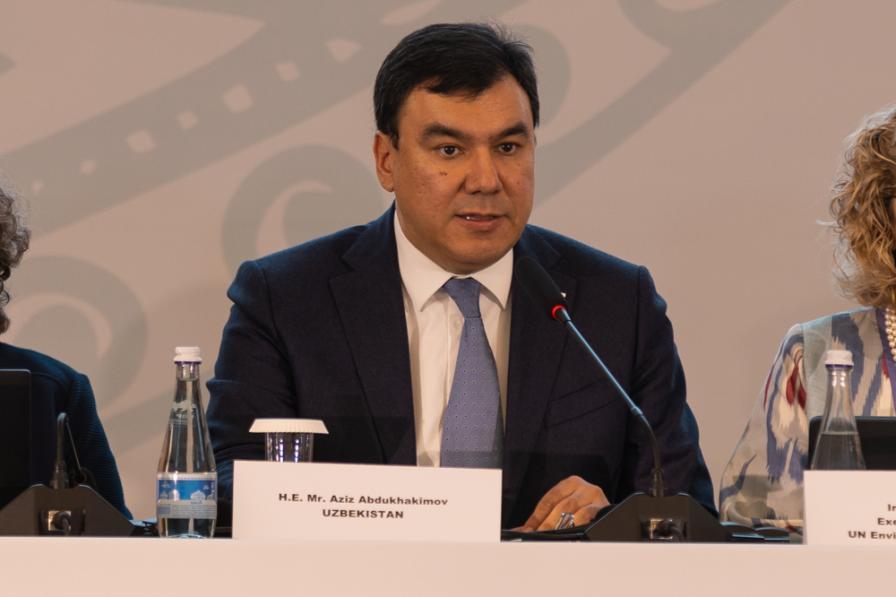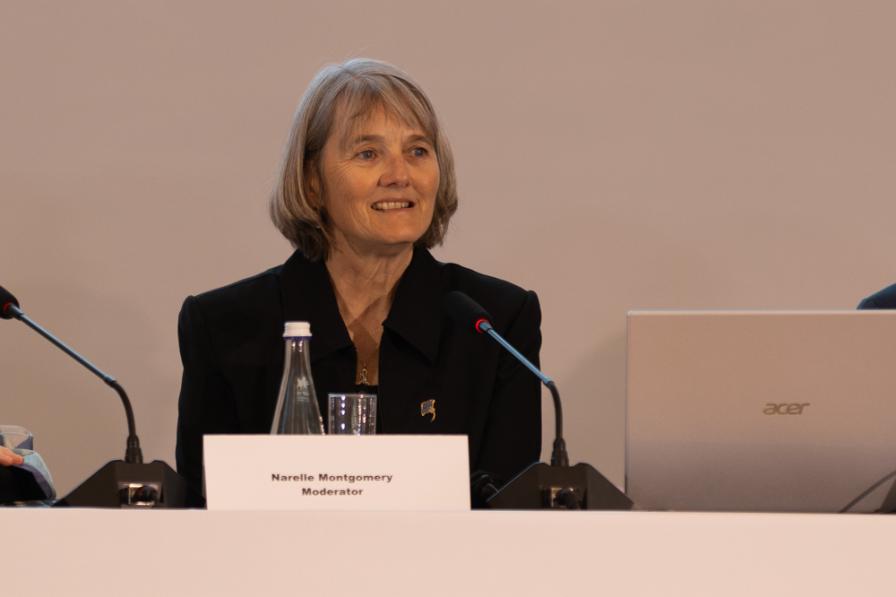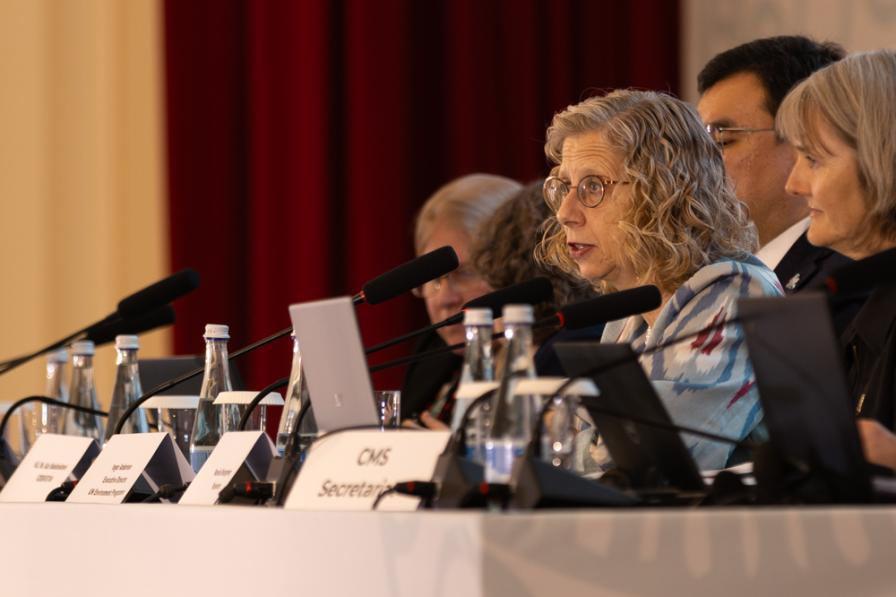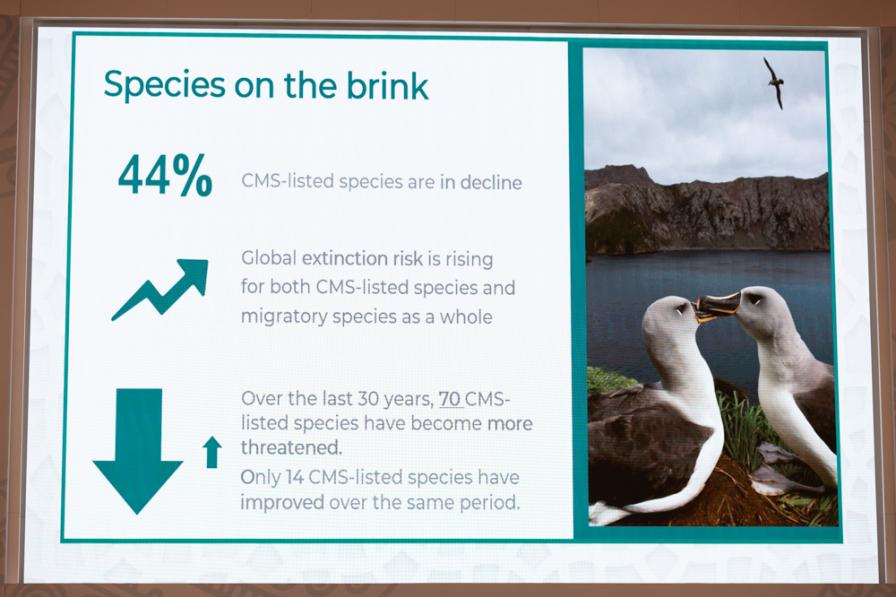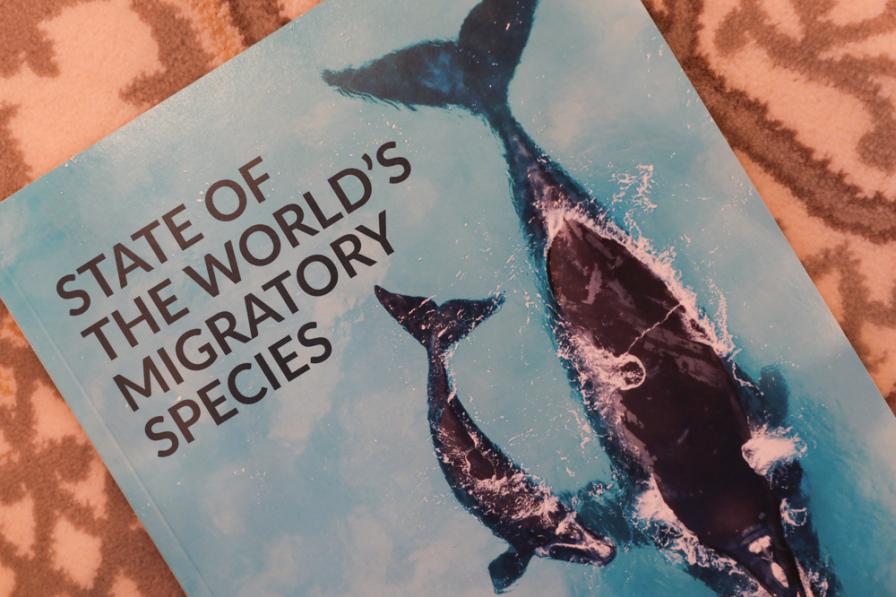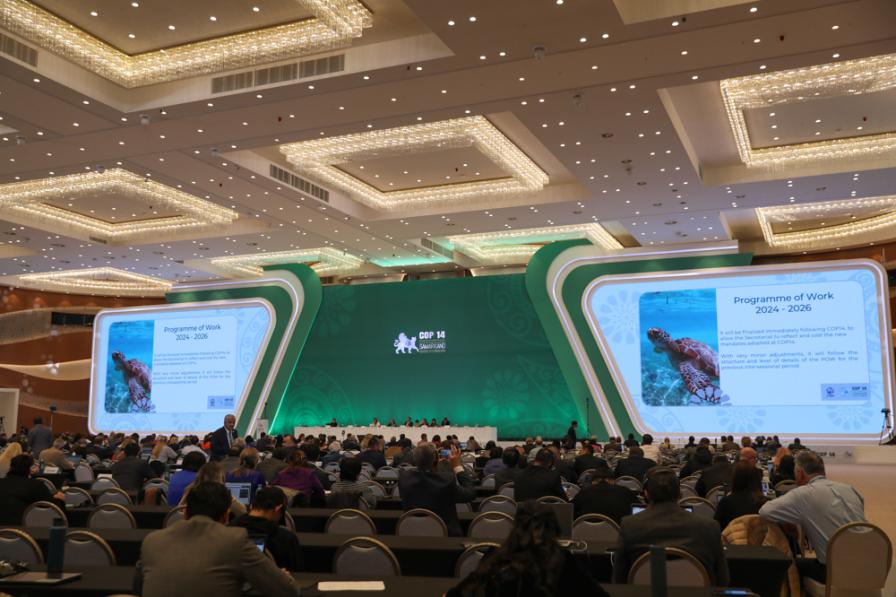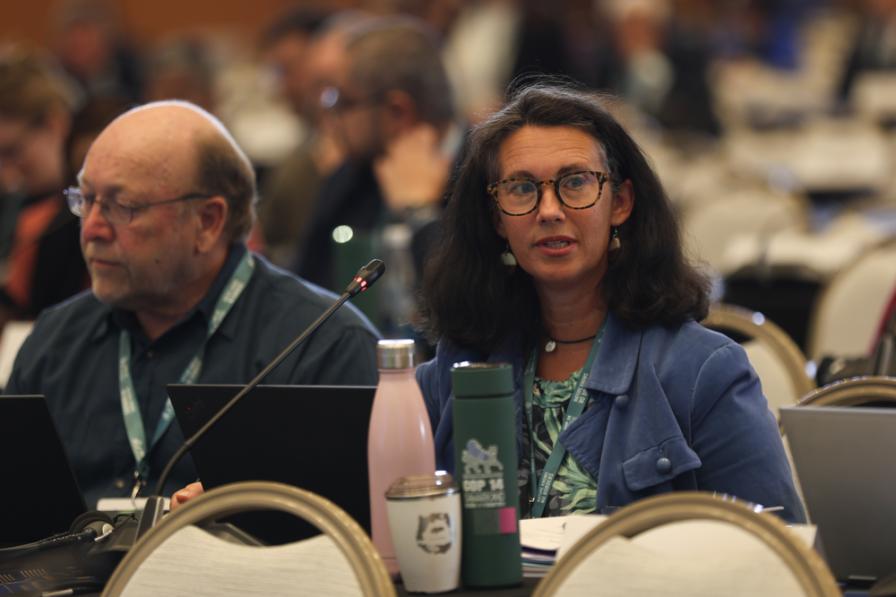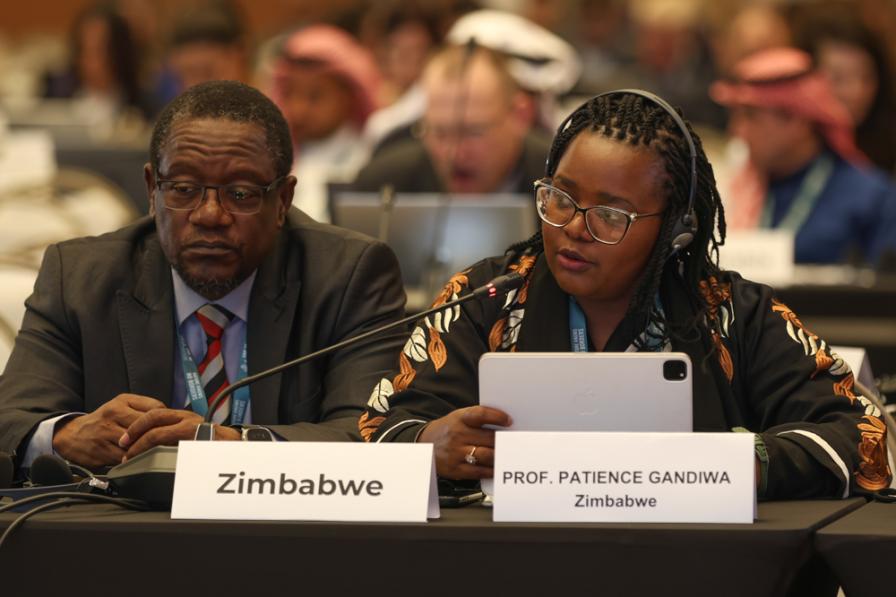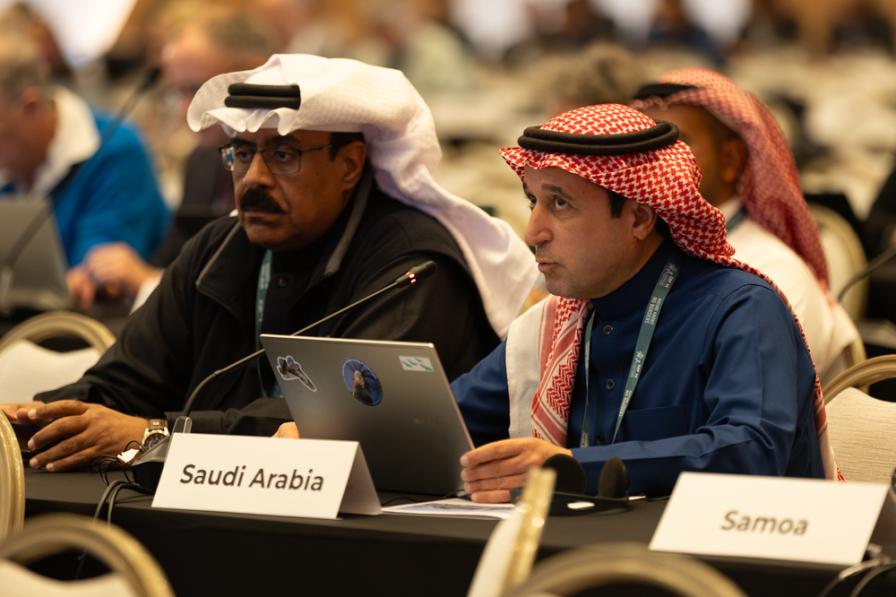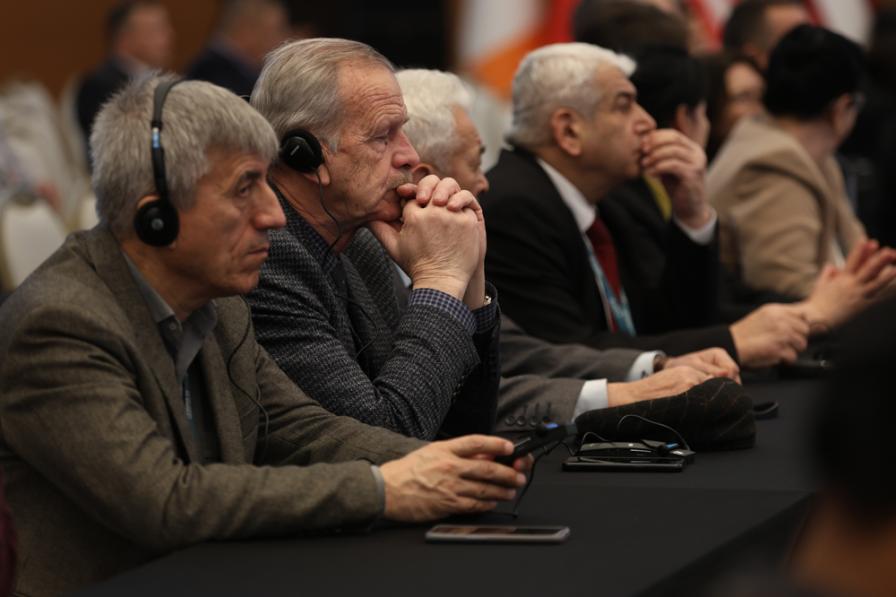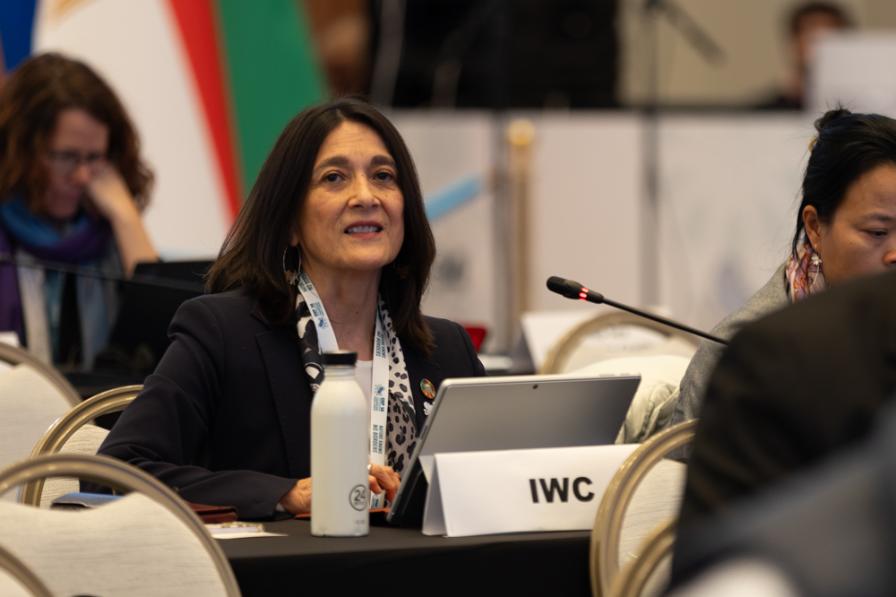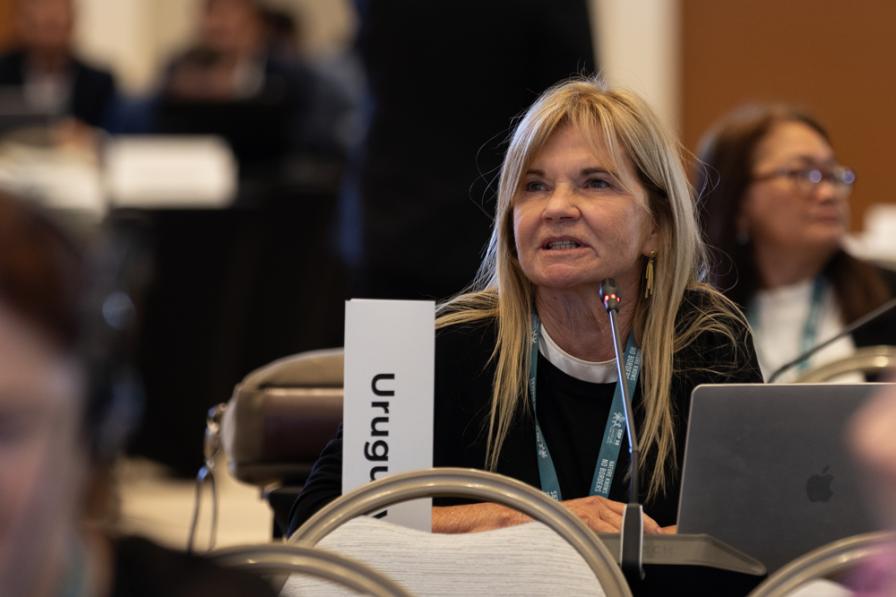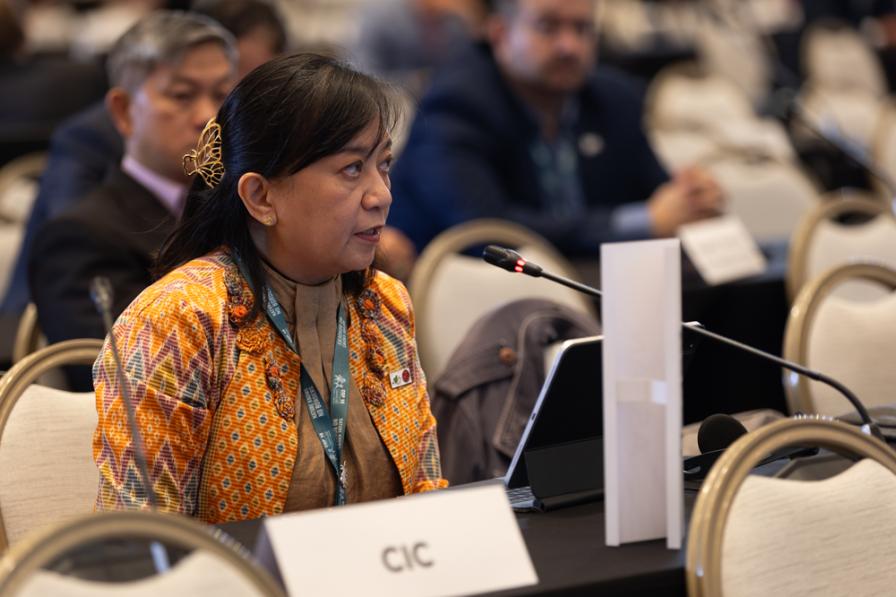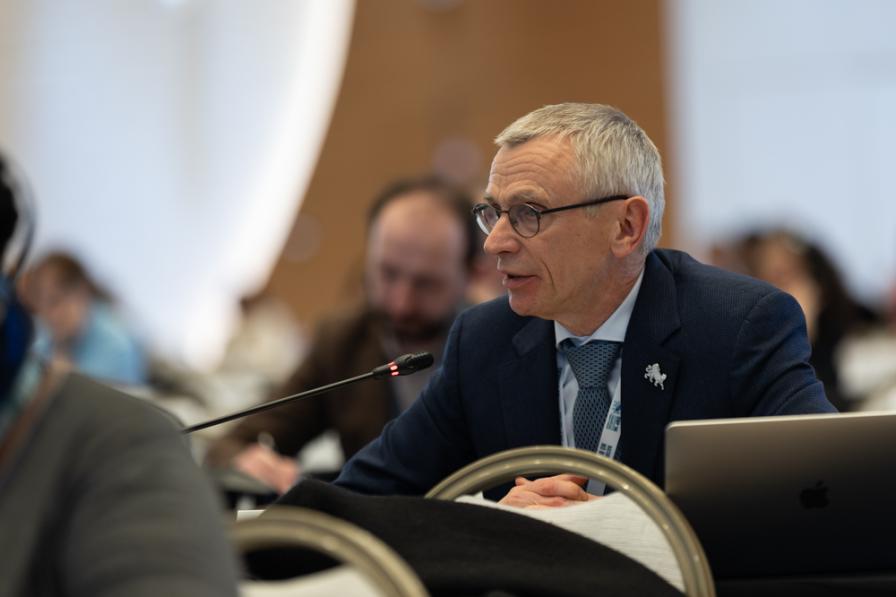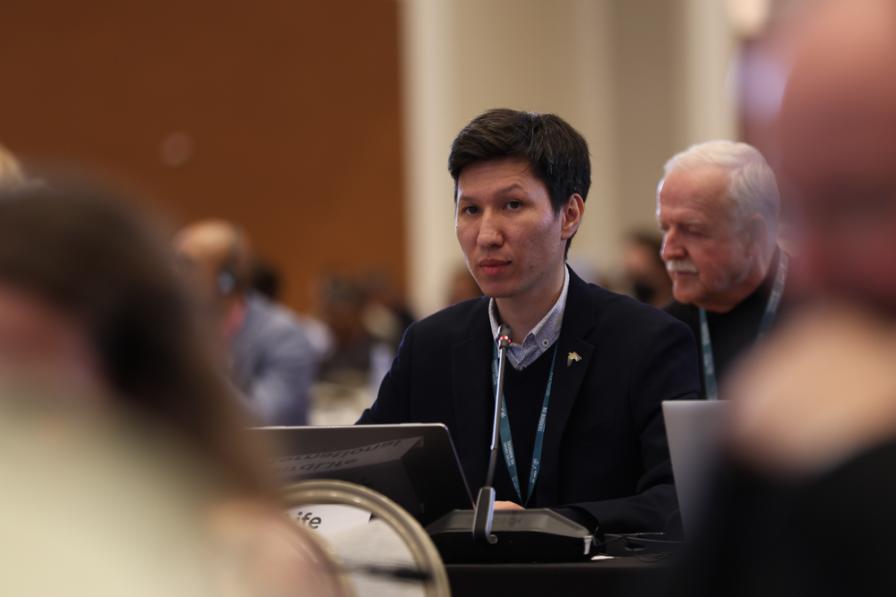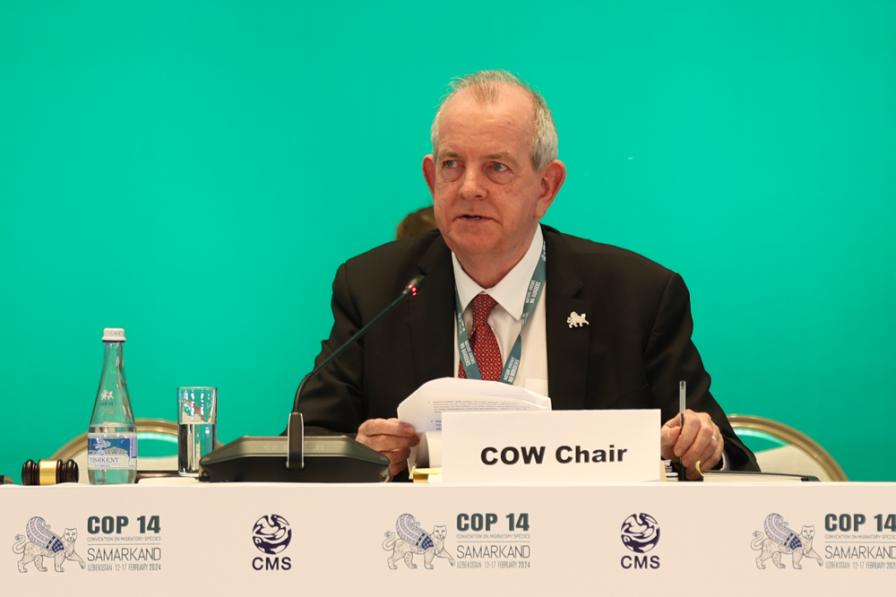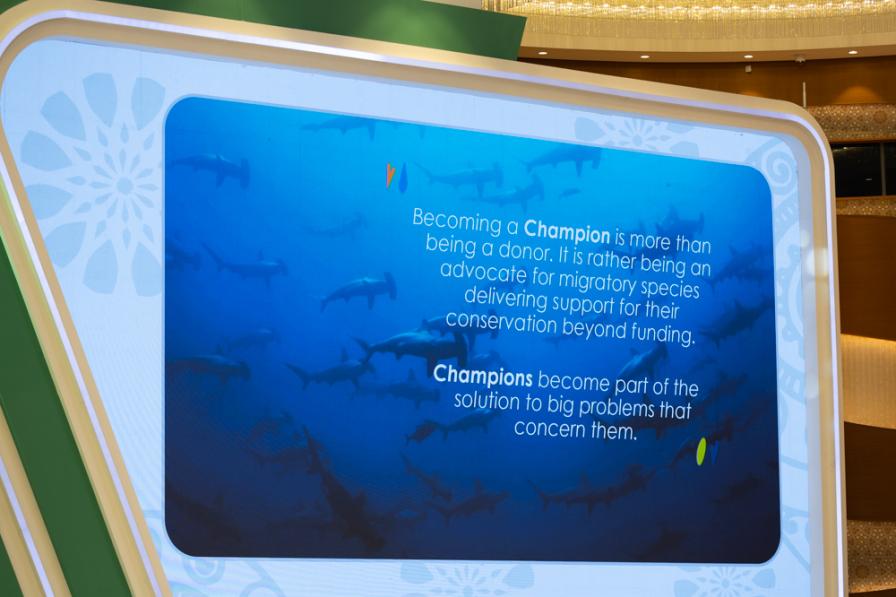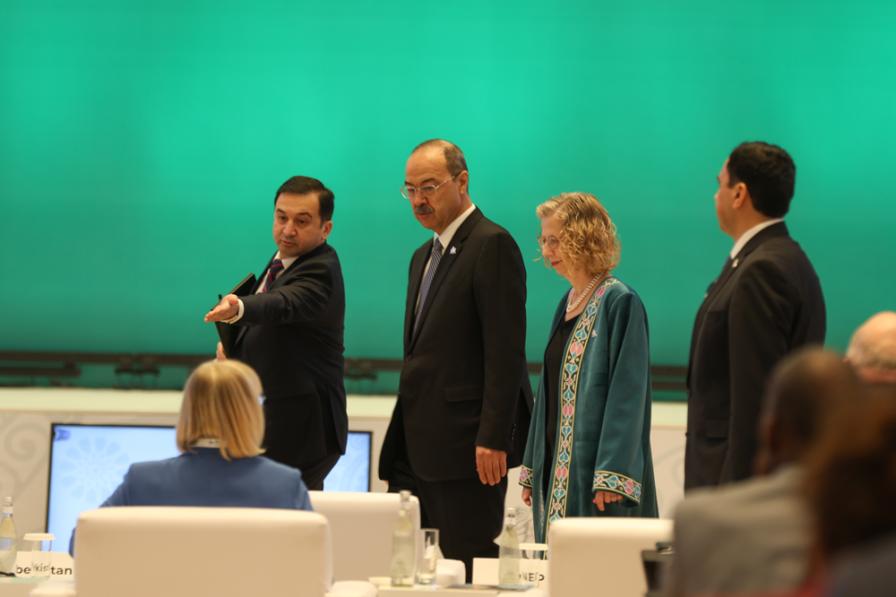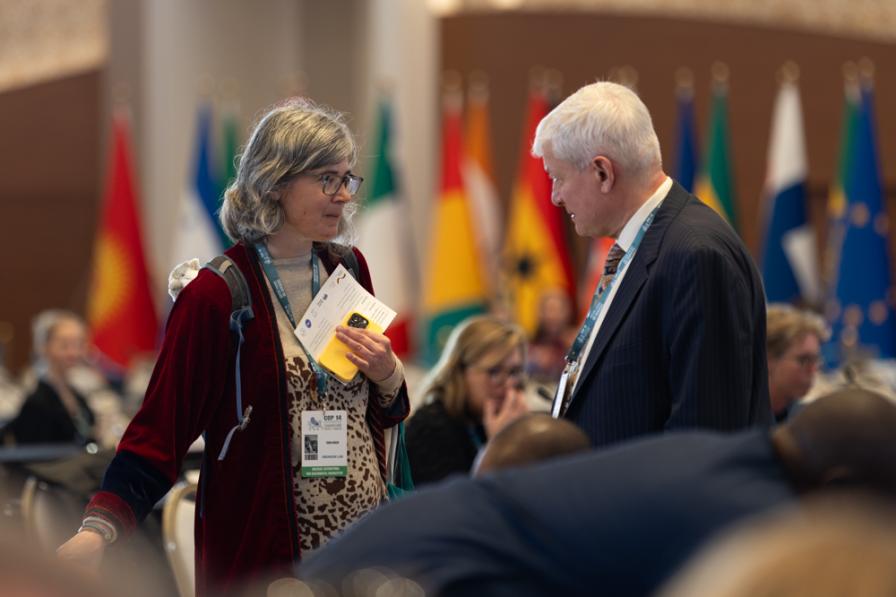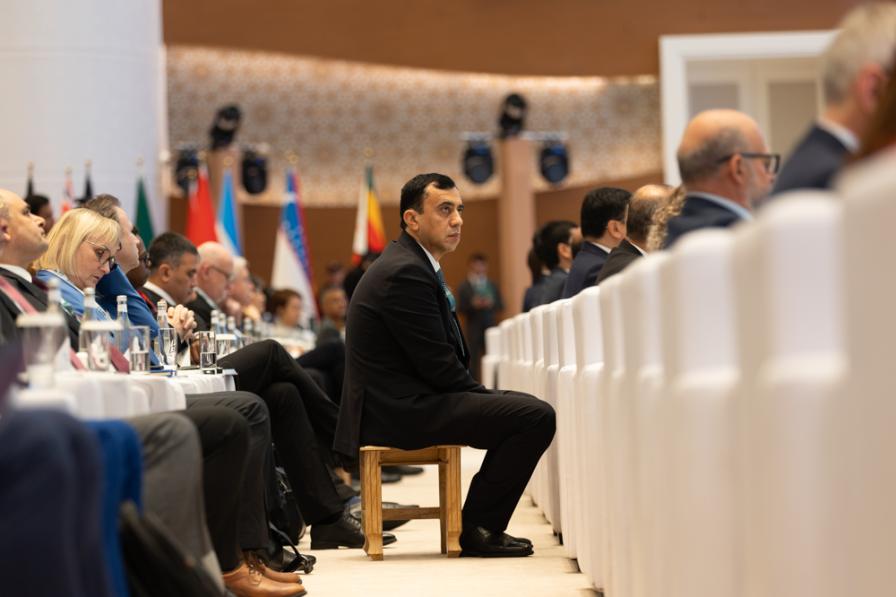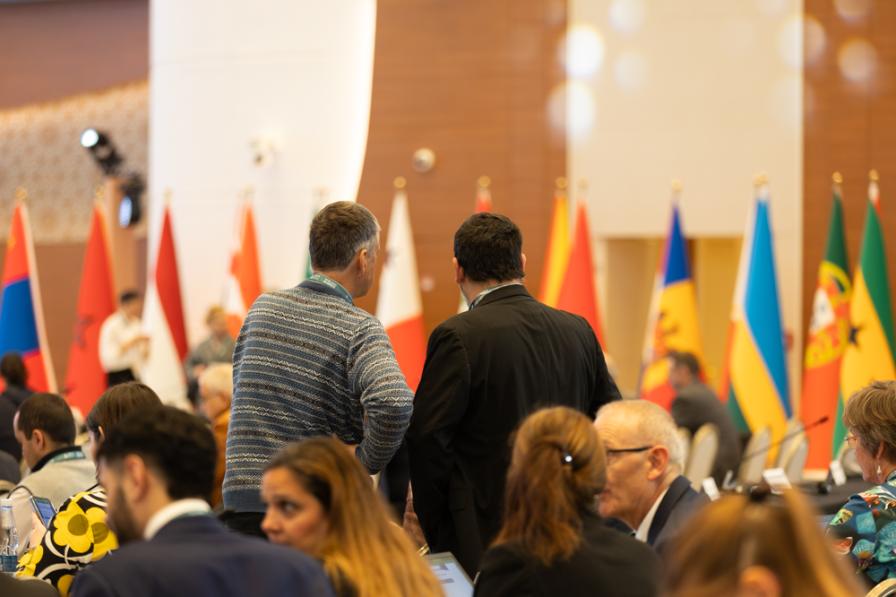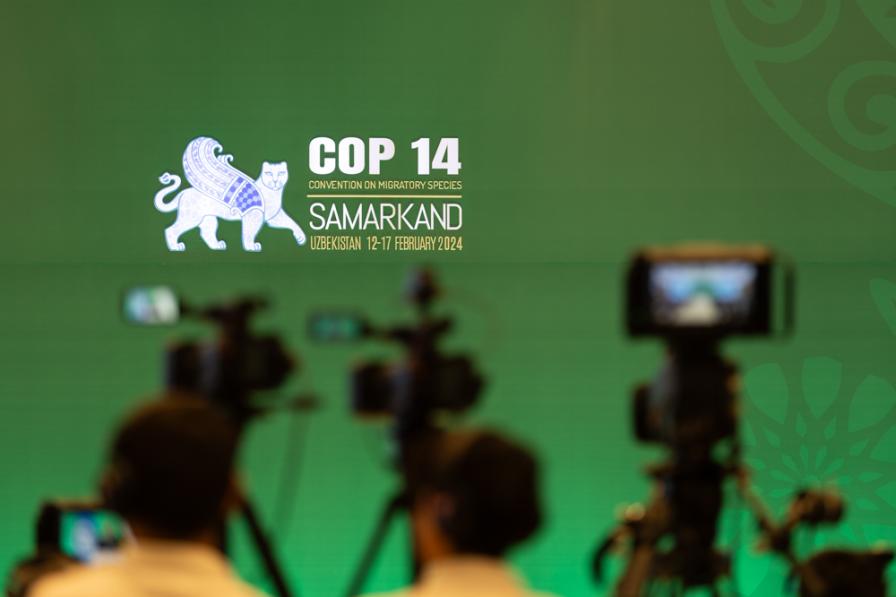Protecting migratory species across their full ranges, which can span countries and sometimes entire continents, was underlined as the foundation for all discussions to come during the 14th Meeting of the Conference of the Parties (COP14) of the Convention on the Conservation of Migratory Species of Wild Animals (CMS). Opening speeches focused on the importance of collaboration, and stressed the relevance of COP14’s theme: “nature knows no borders.” Several speakers encouraged participants to use the full spectrum of mechanisms and tools available, including strengthened and coordinated multilateral action, to prevent adding further pressures to the list of threats that already impact migratory species.
Want to dig deeper into today's talks? Read the full Earth Negotiations Bulletin daily report.
Welcoming participants to the first multilateral environmental agreement COP ever held in Central Asia, Abdulla Aripov, Prime Minister of Uzbekistan, highlighted ongoing regional collaborative efforts to establish transboundary protected areas with Uzbekistan’s neighbouring countries. Inger Andersen, UN Under-Secretary-General and Executive Director of UN Environment Programme (UNEP), encouraged all nations to protect critical species and habitats.
Indicative of past calls for enhanced multilateral partnerships on a global scale, a Global Environment Facility (GEF) CEO and Chairperson attended a CMS COP for the first time. Carlos Manuel Rodríguez welcomed continued strategic collaboration between CMS and the GEF.
Participants were then treated to a rousing performance by an Uzbek dance troupe, who portrayed the diversity of migratory species in Central Asia and the threats they face. The first-ever State of the World’s Migratory Species report also launched on Monday and revealed the “alarming” findings that 44% of CMS-listed species’ populations are in decline; over one-fifth of CMS-listed animals threatened with extinction; and half of the Key Biodiversity Areas (KBAs) identified as important for migratory animals lack a protected status.
CMS Executive Secretary Amy Fraenkel underlined that “we know what is needed to turn this situation around,” highlighting concrete actions and opportunities such as mitigating the illegal killing of migratory birds and tackling marine species bycatch. The landmark report’s recommendations also include the need to consider protecting at-risk, non-CMS-listed migratory animals under the Convention.
Over the course of the afternoon, the COP proceeded with organizational matters. Parties, CMS Agreement representatives, IGOs, and NGOs reported on progress achieved and challenges encountered in intersessional work undertaken since COP13 in February 2020. Delegates shared experiences and regional initiatives, with many expressing hope that deliberations will foster collaboration and deliver on truly addressing the transboundary nature of migratory species. The COP established the Committee of the Whole (CoW) and addressed budgetary and resource mobilization matters.
CMS Executive Secretary Fraenkel addressed participants frankly, outlining the financial realities and requirements for enabling successful implementation of the Convention’s work. As the session drew to an early close, CoW Chair Colin Galbraith (UK) encouraged participants to use this additional time to advance the mandates of the five established working groups.
In the evening, the COP14 Champion Night recognized and celebrated new CMS Champions for their outstanding efforts in protecting migratory species. A reception hosted by the government of Uzbekistan followed.
To receive free coverage of global environmental events delivered to your inbox, subscribe to the ENB Update newsletter.
All ENB photos are free to use with attribution. For CMS COP14 please use: Photo by IISD/ENB - Kiara Worth
Afternoon Plenary
CMS Champion Night
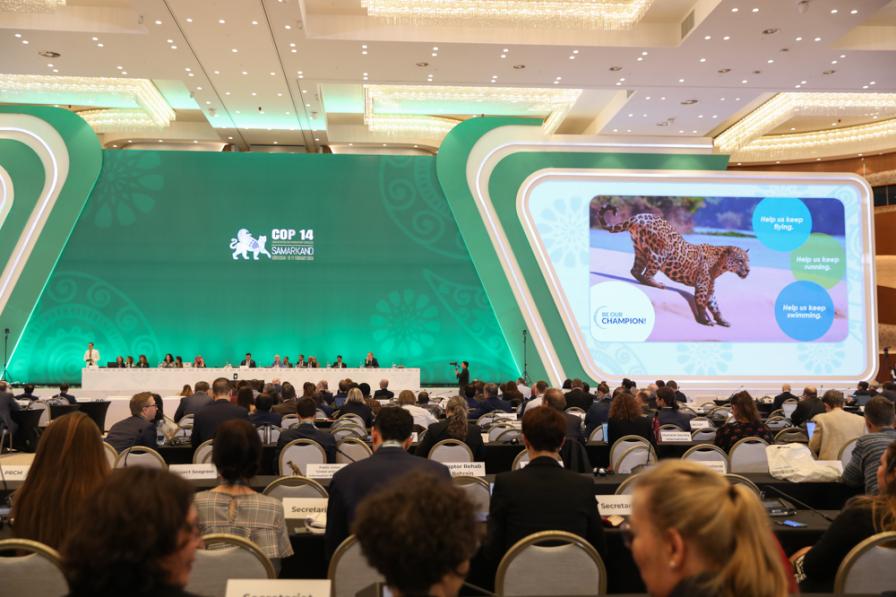
In an evening event, a celebration was held to honor 10 new CMS Champions who were awarded for their outstanding efforts and commitments to the global fight for conserving migratory species. The awards were given to: the European Commission; Germany; the UK; the Environment Agency - Abu Dhabi; Saudi Arabia; German Federal Agency for Nature Conservation; and Uzbekistan.
